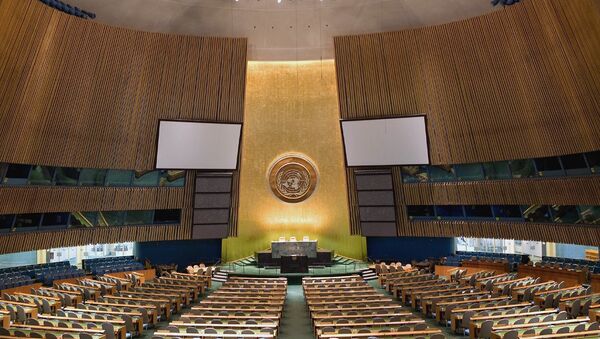The resolution was adopted on Thursday, September 10, by an overwhelming majority, with 136 states voting "yes", 41 countries abstaining and only six members of the assembly – the US, UK, Japan, Germany, Canada and Israel – voting "no."
The new non-binding resolution sets nine principles for restructuring national debts, and calls on debtors and creditors "to act in good faith and with cooperative spirit."
One of the principles states that governments have the right to restructure debts "which should not be frustrated or impeded by any abusive measures," and that "restructuring should be done as the last resort and preserving at the outset creditors' rights." The governments are also afforded a right of sovereign immunity from jurisdiction and execution regarding sovereign debt restructurings before foreign domestic courts, and that "exceptions should be restrictively interpreted."
Another principle says that "a non-representative minority of creditors… must respect the decisions adopted by the majority of the creditors."
The document also declares that a state has the right "to design its macroeconomic policy, including restructuring its sovereign debt, which should not be frustrated or impeded by any abusive measures." However, "restructuring should be done as the last resort and preserving at the outset creditors' rights."
The UN General Assembly has so far adopted a total of three resolutions spurred by a speculative action which caused a second default in Argentina in July 2014, when a US judge ruled in favor of a minority of creditors who demanded to be paid in full and refused any sort of debt relief to the country.
Argentine President Cristina Fernandez said that her country had helped other nations "so they don't have to suffer the same tragedies, the same injustice, and the same miseries that we Argentinians went through."


